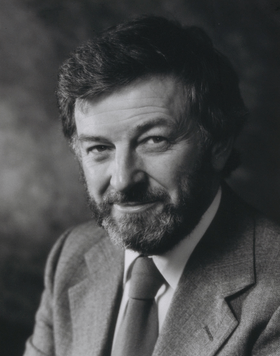David A. Walker (scientist) facts for kids
Quick facts for kids
David Walker
|
|
|---|---|
 |
|
| Born |
David Alan Walker
18 August 1928 |
| Died | 12 February 2012 (aged 83) |
| Education | South Shields Boys' High School |
| Alma mater | Durham University (BSc, PhD) |
| Awards | Humboldt Research Prize (1991) |
| Scientific career | |
| Fields | Photosynthesis |
| Institutions | |
| Doctoral advisor | Meirion Thomas |
| Influences | Robin Hill |
David Alan Walker (born August 18, 1928 – died February 12, 2012) was a British scientist. He was a professor who studied photosynthesis at the University of Sheffield. Photosynthesis is how plants make their own food using sunlight. David Walker wrote over 200 science papers and several books. He was a very important researcher in his field.
David Walker's Early Life and Learning
David Walker was born in a city called Hull in England. He went to South Shields Boys' High School from 1939 to 1946. After school, he joined the Royal Naval Air Service for his national service.
Later, he went to King's College, Newcastle. This college was part of Durham University at the time. There, he earned his first science degree, a Bachelor of Science. He then continued his studies and received his PhD. His research for his PhD was guided by a scientist named Meirion Thomas.
David Walker's Work on Photosynthesis
David Walker spent his career studying photosynthesis. This is the amazing process where plants use sunlight to turn carbon dioxide and water into food. He made big discoveries about how plants do this.
He especially focused on the "Benson–Calvin cycle." This is a series of steps inside plant cells where carbon dioxide is changed into sugars. He looked closely at how this cycle works in the green parts of plants called chloroplasts.
Walker's careful work helped scientists understand how the Calvin cycle is controlled. He also showed how it connects with other parts of photosynthesis. These parts create energy molecules like ATP and NADPH. These molecules are like tiny batteries that power the plant's food-making process.
Awards and Special Honours
In 1976, David Walker became a Fellow of the Royal Society (FRS). This is a very high honour for scientists in the UK. It means he was recognized for his outstanding contributions to science.
When he was chosen, the Royal Society noted his important work. They said he was the first to show how to make plant parts (chloroplasts) do photosynthesis very well in a lab. This allowed scientists to study the process much better. His methods were very useful and helped advance the study of how green plants work.
He was also recognized for his research on the enzymes involved in how plants take in carbon. Enzymes are special proteins that help chemical reactions happen.
In 2004, David Walker received another award. The International Society of Photosynthesis Research gave him a Communications Award. This was to thank him for his great efforts to explain photosynthesis to everyone, not just other scientists. He also received a Doctor of Science degree from Newcastle University. This was for his excellent published work in his field.
 | Toni Morrison |
 | Barack Obama |
 | Martin Luther King Jr. |
 | Ralph Bunche |

